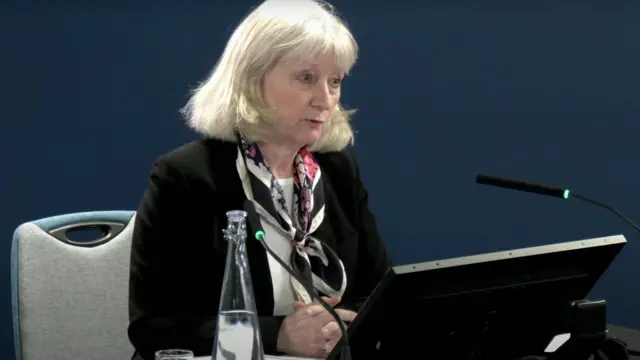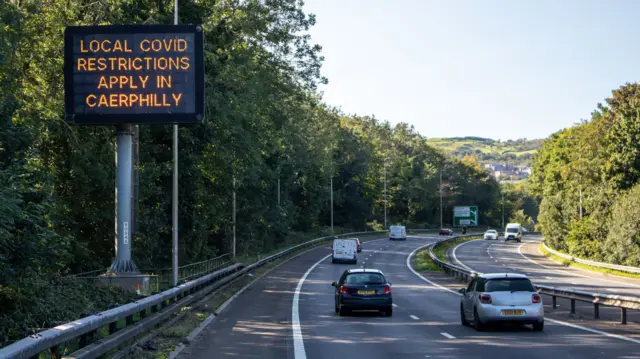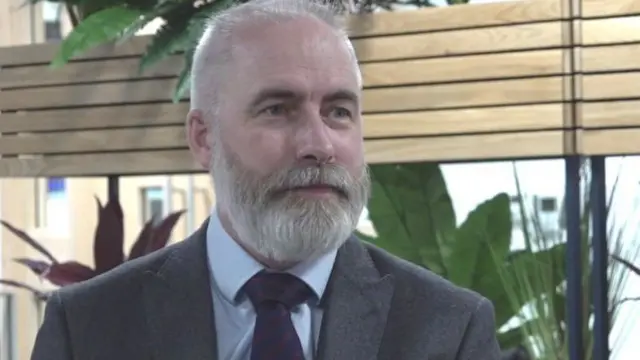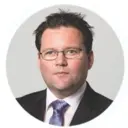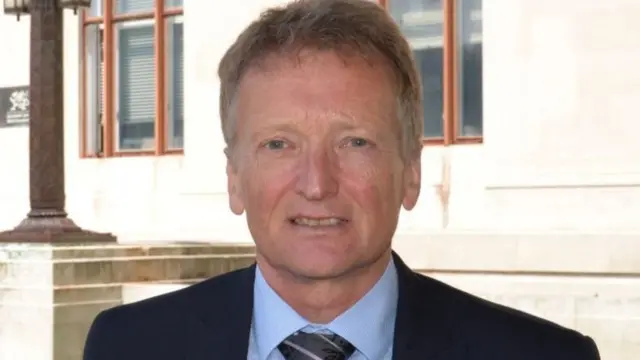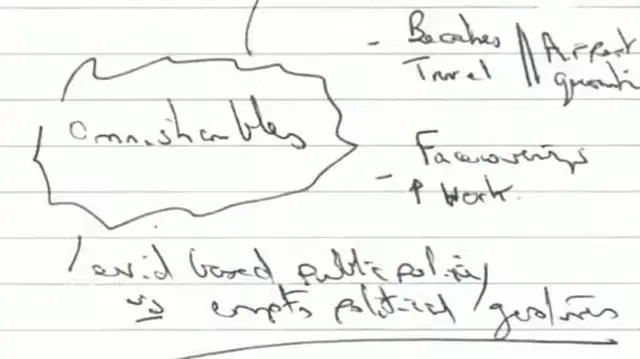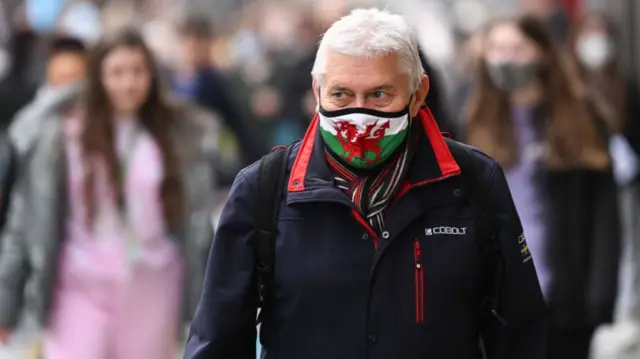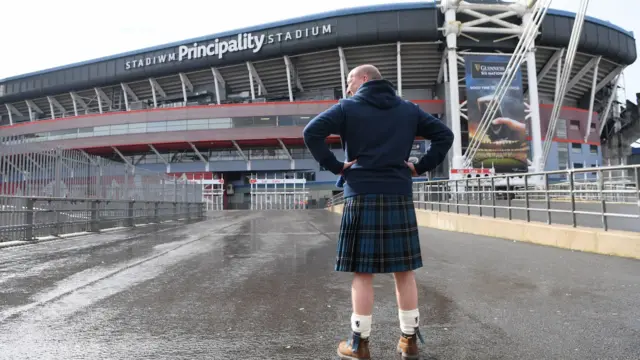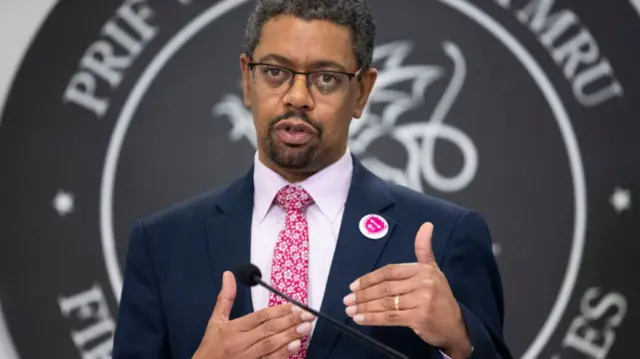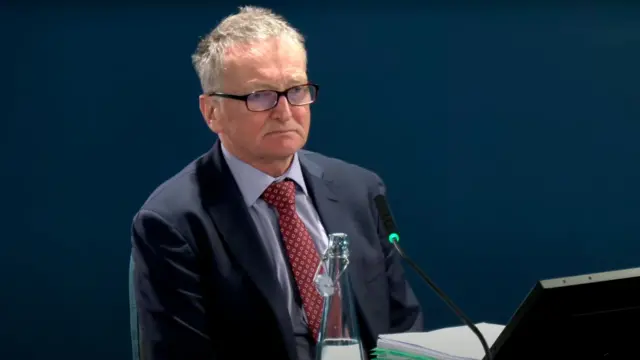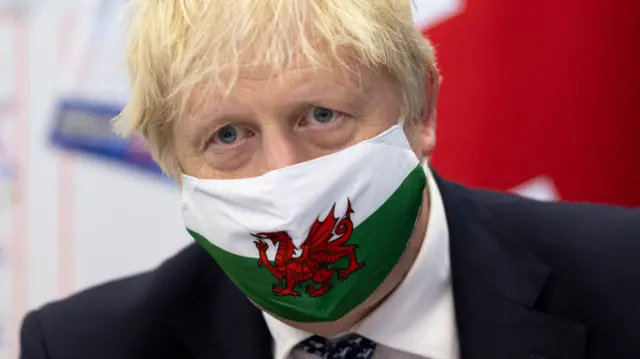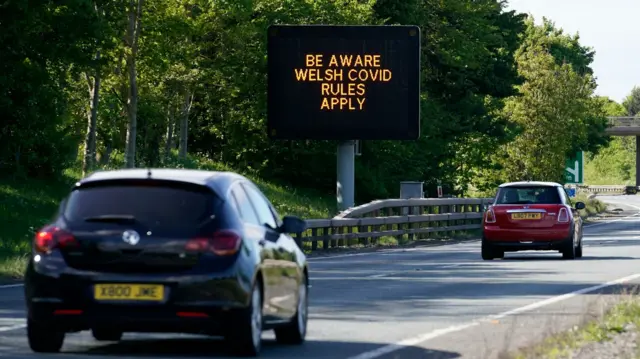Thanks for joining uspublished at 16:50 GMT 4 March 2024
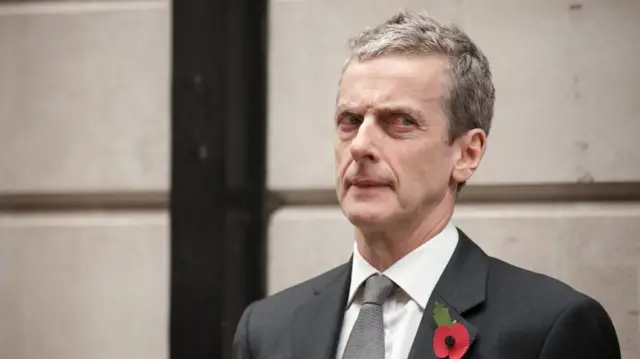
Frank Atherton used the Malcolm Tucker phrase "omnishambles" to describe the level of differing restrictions around the UK
Our live coverage of Monday's Covid Inquiry has come to an end, we've heard from Wales' chief medical officer, chief scientific adviser and a former top civil servant.
Here are the key things we've learned:
- Omnishambles was the word chief medical officer Frank Atherton wrote in his notebook in 2020 to describe the level of differing restrictions around the UK. The term, coined by character Malcolm Tucker in BBC political satire The Thick of It, means a situation which is shambolic from every possible angle
- Former top civil servant Dame Shan Morgan admits to deleting "some" WhatsApp messages about Covid, which she describes as "housekeeping"
- Local lockdowns were a failed experiment, according to First Minister Mark Drakeford in evidence provided to the inquiry. He will field questions himself next week
- Atherton also says Wales should have copied England's facemask rules as being different became "very problematic"
- He also says that Vaughan Gething, Wales' health minister for the bulk of Covid, incorrectly told the Welsh cabinet that there has been no Covid cases in the UK on 25 Febuary, despite nine cases already having been recorded
Join us tomorrow morning when we'll hear from Wales' top civil servant Dr Andrew Goodall and Public Health Wales boss Dr Tracey Cooper.

